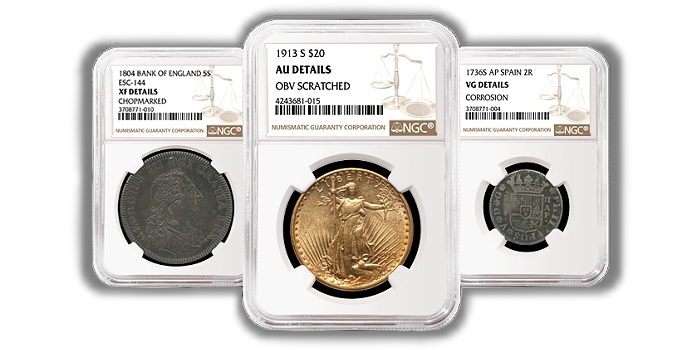Learning Courses, Certifications, Processes
Exploring Job Opportunities in the Rare Coin Industry
Bullion Shark
April 08, 2024If you’re interested in pursuing a career in jewelry and precious metals, add numismatics (the collection and study of coins) to your list of potential specializations. The rare coin industry is a niche area of art and collectibles that combines the thrill of the hunt with intricate designs, premium precious metals, and rich history with a focus on the buying, selling, and trading of valuable currency.
Whether you’re a devoted currency collector or are interested in learning more about rare coins, consider some of the potential career opportunities below and get your foot in the door of a unique and rewarding industry with room to grow.
Rare Coin Dealer
For many coin enthusiasts and devoted numismatists, sourcing, handling, and evaluating rare and interesting coins is both a beloved pastime and a rewarding career. Dealers trade in coins through internet sales, brick-and-mortar shops, participation in the trade show circuit, and more.
As a rare coin dealer, you’ll spend time making industry connections and cultivating client relationships while working with customers to buy and sell rare coins. A career as a rare coin dealer lets you show off your numismatic knowledge while providing access to a wide range of unique and exciting coins.
The History of Numismatics is worth reading to better understand the importance of Rare Coins.
Coin Cataloguer
A cataloguer is a specialized role for a coin enthusiast or numismatist with an eye for details and a way with words. As a rare coin cataloguer, your role would include crafting descriptions and capturing images of the items with careful accuracy. Other duties could include sorting, examining, and proper labeling for storage, sale, and disbursement.
Depending on the institution or organization, you might also be responsible for digitizing collections — especially if you’re working with coins that will be accessible to the public like the National Numismatic Collection at the Smithsonian or the British Museum’s Department of Money and Medals.
Coin Grader
Another specialty position like a coin cataloger is a coin grader, who evaluates the appearance and physical condition of the item. Proper grading of collectible coins is important for determining the artifact’s value, and coins are put through a rigorous grading system. In the U.S., for example, coins are assigned a grade based on the 70-point Sheldon Scale. While grading systems vary slightly between countries, the purpose is the same — evaluation and determination of quality.
To pursue a successful career as a coin grader, consider obtaining an accreditation or certification from the American Numismatics Association (ANA) or another recognized authority in the rare coin industry. Coin graders can find positions with professional grading organizations, auction houses and other dealers, as well as owning and operating independent businesses.
Rare Coin Appraiser
While a professional coin grader determines the condition of a coin, a coin appraiser determines the value of a specific coin or entire collection. Coin dealers often assess and purchase collections for resale, while appraisers assign potential value. A professional appraisal is usually in need for valuable coins to determine the market value for insurance, estate settlements, and potential future sale, trade, or donation.
Rare coin appraisers might be industry specialists working independently or with a coin dealer, or have a broader knowledge of collectible items and their potential value at auction. They perform services either from their place of business or at the client’s home and can charge a hefty hourly rate of $100-200 USD for their professional knowledge.
Coin Historian
If you love to dive into the stories behind collectibles, the study and preservation of rare coins might be the career path for you. Scholarly appointments typically require advanced degrees, but you don’t necessarily need a background that’s specifically in numismatics. Education in ancient history, archaeology, anthropology, and other similar fields can pave the way to a curatorial or preservation-focused position in rare coins.
Some roles where a historian might focus on rare coins include curatorial roles in museums and universities, teaching positions, archiving, and restoration. Coin historians can also secure positions as subject matter experts for large dealers and respected auction houses.
Support Roles in the Rare Coin Industry
Even if you aren’t a seasoned numismatist, there are many supporting roles available to utilize your management, marketing, administrative, or operational talents in the rare coin industry. Some positions to consider with coin dealers, graders, organizations, auction houses, and museums include:
- Customer Service Representative
- Operations Associate
- Marketing Manager
- Social Media Specialist
- IT Support
- Database Management
- Shipping and Receiving
These roles are plentiful and often good entry points into the industry and give you a chance to gain more specialized knowledge as you advance in your career.
Find a Solid Gold Career in the Rare Coin Industry
Now that you have a feel for potential job opportunities available working with collectible coins, take the next steps toward securing your desired role in the field. Browse postings on job boards and take note of the education, training, or certifications necessary to fill the position.
Summary
Whether you’re looking for entry-level, managerial, or scholarly options, you’ll find a rewarding career path with room for personal and professional growth in the rare coin industry.
All Tags
